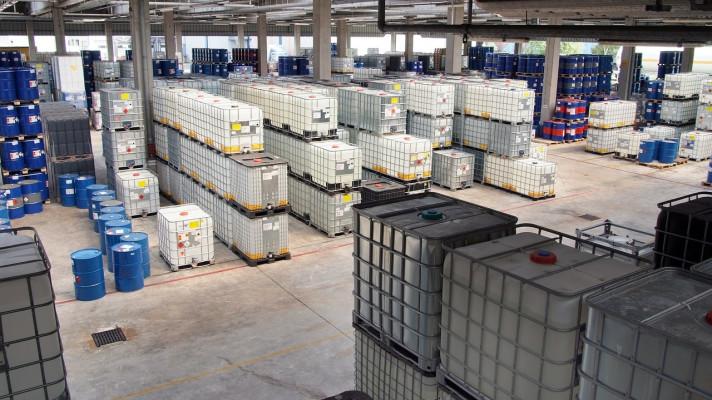CARTAGENA - Albatrosses, whales and even remote Arctic tribes in some of the Earth\'s most pristine regions carry high levels of toxic chemicals and world leaders must act quickly to protect them, officials and scientists said last week.
UN seeks crackdown on hazardous chemicals
With production of most hazardous chemicals shifting to developing countries, world environment ministers met in this Caribbean city to plan a global crackdown on the manufacture, dumping and rampant smuggling of banned substances.
The plan, which is being discussed at a U.N.-sponsored conference on the environment, would also provide funding to poor countries, whose weak safety standards and inadequate storage are raising fears of increased global contamination.
The chemicals in question deplete the ozone layer, cause climate change and affect the world\'s biodiversity. Some cause cancer, immune deficiencies and reproductive impairments.
Their spread to remote areas of the globe far from where they were released shows how pervasive they have become and the seriousness of the threat to the environment.
U.N. officials say a thorough evaluation of the health effects of various chemicals is needed, a difficult task with 70,000 different chemicals on the market and 1,500 new ones being introduced every year.
\"You have people in the Arctic who have very high levels of these hazardous chemicals in their bodies from eating fish and seals, but the chemicals are released in North America or Latin America. The chemicals travel and poison people,\" James Willis, director of chemicals at the United Nations Environment Program (UNEP), told Reuters.
A U.N. report released last week said albatrosses nesting on remote Midway Island in the Northern Pacific are carrying hazardous levels of polychlorinated biphenyls (PCBs), which are industrial chemicals, DDT, dioxins and furans.
REMOTE INUITS SUFFER HIGH CONTAMINANT LEVELS
Many whales have been found to carry PCBs and other contaminants that cause development defects in humans, the report said.
\"Hunting, fishing and trapping continue to provide us with lessons of great relevance. We remain the guardians of the natural environment,\" Sheila Watt-Cloutier, a Canadian leader of the Inuit community wrote in the report.
Scientists have found high levels of PCBs and DDT in blood and tissues of the Inuit, a 150,000-strong tribe that lives in northern Canada, Alaska, Greenland and Russia\'s far East.
The plan, which will be sent for final approval to a world summit on sustainable development in Johannesburg in August and September, focuses on hazardous chemicals already banned under international treaties, including the so-called \"dirty dozen.\"
Among these are dioxins, produced by incinerators and paper factories, and DDT, which is still used to control mosquitoes in malarial areas.
Hazardous chemicals are smuggled to poor countries, where they are dumped in landfills, and cities and villages are exposed, experts said.
The plan would enforce stricter controls on smuggling of chemicals. It also calls for global standards for the screening and labeling of hazardous chemicals to prevent smuggling, and seeks to make data on chemicals available to developing countries.
If approved, development agencies such as the World Bank would work closer with developing countries to fund the program, officials said.
Advocates of the plan, including European countries, say a global approach will help reduce risks to the environment and human health. But representatives from China, Kenya, Russia and Senegal said key to the program\'s success is finding international funding to pay for training and technology.
The United States has agreed to the plan in principle and said it should concentrate on high-volume toxic chemicals.
Story by Ibon Villelabeitia
REUTERS NEWS SERVICE
Sdílet článek na sociálních sítích
